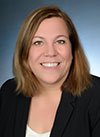
It is no secret that Wisconsin attorneys are busy. For most offices throughout the state, new client opportunities are presented every day and calendars continue to fill with consultations, client meetings, and court appearances.
Statewide data confirms that the justice system is active. In 2022, the Wisconsin Court System had 728,986 incoming cases, and although many of these cases do not warrant attorney involvement, the number clearly shows a need for attorneys, even in rural areas. Further, the number of attorneys in rural areas appears to be decreasing, for reasons including natural attrition due to attorney retirement and new attorneys being indifferent toward rural areas, because of the amenities, convenience, benefits, and offerings of larger cities or the assumed lack of social, cultural, and economic activity in a particular rural area. On the other hand, rural areas are a great place to raise children, get involved in local activities, and still be within a few hours of a larger city. As an attorney from northern Wisconsin recently said, “It’s a great area, with unlimited possibilities, paying clients, and few attorneys.”
In rural areas, daily requests for assistance are the norm. Rural colleagues often report that they have “put a freeze on new appointments” or are “scheduling new appointments 30 days out.” The workload gives rural attorneys the opportunity to be more selective about the types of cases and clients they accept, and one factor that attorneys evaluate is potential clients’ ability to pay. This ability-to-pay consideration may be less tricky to determine than we think; potential clients’ inability to pay and clients’ lack of payment appear to not be significant obstacles for many rural lawyers.
Data on Wisconsin Residents’ Income and Lawyers’ Rates
According to U.S. Bureau of Labor Statistics’ third quarter 2022 information, the average income for a Wisconsin resident was $1,140 per week. Although average expenses have significantly increased in the last few years, including because of inflation, this amount is not officially considered low income. My staff contacted all law firms within 50 miles of our office, and our research indicated that nearly all attorneys within a 50-mile radius of any central city point had hourly rates within $50 of the others. Additionally, most law firms did not report an abundance of court action required to collect on their invoices. This suggests that attorneys in Wisconsin, including rural Wisconsin, are paid the rates they are asking from most of their clients.
Benefits and Costs of Representing Clients Who Don’t Privately Pay
Attorneys Can Be Paid by Nonprofit and Governmental Organizations and Employee Benefit Plans. Although many Wisconsin residents are able to pay the hourly rates and significant retainers that attorneys charge, there also are many individuals who need legal help but are unable to pay or have limited means. For many of these potential clients, programs are available that offer legal assistance at a discounted rate, flat fee, or no cost. As of the date of this article, the hourly rate paid by Judicare is $75 per hour, the hourly rate paid for county appointment of a private attorney is $100 per hour (which was adjusted in January 2020 from $70 per hour), and the hourly rate for private-bar public defenders is $70 per hour (but in current legislation is set to be increased to $100 per hour). Another way for people to receive legal assistance, and thus for lawyers to be paid, is through insurance-type plans through local factories and other employers that offer the policyholders some type of discount or flat fees for preparing some types of documents, such as wills.
 Alanna J. Feddick-Goodwin, Oak Brook College of Law & Government 1999, is the owner of Feddick-Goodwin Law Office S.C., Marshfield. The general practice firm handles all aspects of family law, including divorce, paternity, and child custody, primarily in Wood, Marathon, Portage, Taylor, Clark, and Adams counties, and serves as guardian ad litem. She is a member of the State Bar of Wisconsin and the State Bar of California. She co-founded Marshfield Young Professionals and has been an active community member for over 20 years.
Alanna J. Feddick-Goodwin, Oak Brook College of Law & Government 1999, is the owner of Feddick-Goodwin Law Office S.C., Marshfield. The general practice firm handles all aspects of family law, including divorce, paternity, and child custody, primarily in Wood, Marathon, Portage, Taylor, Clark, and Adams counties, and serves as guardian ad litem. She is a member of the State Bar of Wisconsin and the State Bar of California. She co-founded Marshfield Young Professionals and has been an active community member for over 20 years.
Disincentives to Representing Clients Who Don’t Privately Pay. It appears that many rural attorneys are no longer able or are unwilling to participate in these insurance-type plans, legal aid, public defender, or county appointments for many reasons. Attorneys are required, among other things, to be diligent (SCR 20:1.3). But some attorneys have found that clients whom they represent through alternative-pay systems are more difficult to work with in many cases than are private-pay clients, and attorneys who accept clients through these programs typically earn significantly lower rates than their usual charges for potentially higher-conflict and more involved cases. The clients might be unaware of the standard costs and fees required to address matters and therefore are not as considerate of the attorney’s time as private-pay clients. The clients might be more likely than private-pay clients to have initial unreasonable expectations, communicate more often, and expect immediate responses. Attorneys with such clients must do considerable additional work upfront and ensure throughout the process that they are educating the clients and setting (and resetting) reasonable boundaries.
These client expectations cause some attorneys to be more likely to limit their acceptance of the lower rates offered by the programs, which contributes to the perception that there is a shortage of attorneys.
Whether or not there is a shortage of attorneys in rural areas, there is a shortage of time for attorneys practicing in rural areas because their calendars are filled with private-pay clients. The additional need for attorneys to cover cases in which the client is using a reduced-rate program increases the number of self-represented people.
Other Challenges of Practicing in Rural Areas
Being an attorney in a rural area comes with other challenges. One is the heightened potential for conflicts of interest. In locales where “everybody knows someone,” potential clients are very likely to have knowledge of current or previous opposing parties and current or previous clients. This can be especially frustrating when searching for a guardian ad litem or mediator in a case; getting past a conflict check is not as easy in these rural areas.
Another is that many attorneys in rural areas feel as though they’re never off the clock. It is likely that attorneys will see clients or opposing parties at parent-teacher conferences, sporting events, grocery stores, restaurants, health-care facilities, spouses’ work gatherings, and even right next door. The increase in social media and electronic communication means potentially receiving an urgent message at 2 a.m., whether from a colleague, a client, or a potential client.
Another challenge is that rural attorneys tend to practice in numerous counties surrounding their local areas. In the center of Wisconsin, there are five courthouses all within one hour’s driving distance. With the advent of Zoom and other videoconferencing technologies during and after the COVID-19 pandemic, it is not impossible to make court appearances in numerous counties in one day; attorneys need not spend all day in a vehicle to do so. However, it can be difficult to practice in several counties because courts might have their own local court rules, and the differences and the predilection for doing things in a certain way in a county can be perplexing at times. The benefit of daily changes, and importance of flexibility, keep the rural practice exciting, challenging, and compelling.
Conclusion
These difficulties, and others not addressed, leave many potential clients unrepresented. Many individuals end up representing themselves, not because they cannot afford an attorney but because they cannot find one who is not conflicted out, is currently accepting new clients, or can fit in an appointment with matters already on a court’s busy and full docket.
Attorneys’ primary selling points are their knowledge of the law and expertise in their areas of practice, from divorces and placement disputes, county work (guardian ad litem or court-appointed counsel), to real estate and probate, litigation, and criminal cases. In our increasingly litigious society, the number of cases and the paying clients are not decreasing. Our rural areas in Wisconsin are no exception to this. It is exciting, challenging, and rewarding to live and practice in rural Wisconsin.
» Cite this article: 96 Wis. Law. 35-36 (November 2023).
